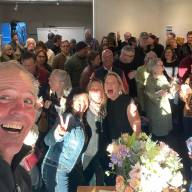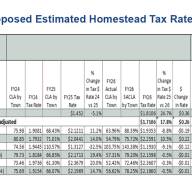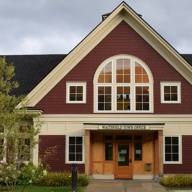By Mary Kathleen Mehuron
A photograph of a coin minted by the sovereign nation of the Republic of Vermont. It shows a plow at the bottom and the sun rising over the Green Mountains. The Latin motto encircling is VERMONTESIUM.RES.PUBLICA, which means The Republic of Vermont. Dated 1786.
This is the fourth article in a series in which I am looking at some important dates concerning the settlement of the Mad River Valley and trying to put them in perspective. My first quandary was why the town of Waitsfield was chartered 1782 but not considered settled until 1789. Eighth generation Vermonter and Valley native Fred Messer of the Meadow Crest Farm helped me out with that discrepancy, “The date of the charter and the date of the settlement will never be the same. If you read the charter, and this is very common, a certain amount of people must live within the town and cultivate the land, in order for the charter to be settled. The charter was given to our town in 1782 and required 70 families.”
He then read to me parts of Page 3 of the History of Waitsfield by Matt Bushnell Jones, "The Governor, Council and General Assembly of the state of Vermont. To all people to whom these presents shall come Greeting: Know ye that Whereas it has been represented to us by our worthy friends the Honorable Roger Enos, Col. Benjamin Wait and company to the number of seventy, that there is a tract of vacant land within this state, which has not been heretofore granted, which they pray may be granted to them. We have therefore thought fit for the due encouragement of settling a plantation, and other valuable considerations us hereunto moving: Do by these presents in the name and by the authority of the Freemen of the State of Vermont, give and grant unto the said Roger Enos, Benjamin Wait, and the several persons hereafter named...”. He then took a moment to turn the page and read from Page 4, “That each proprietor of the township of Waitsfield aforesaid, his heirs or assigns, shall plant and cultivate five acres of land and build a house at least eighteen feet square on the floor or have one family settled on each respective right or share of land...”
Fred elaborated further, “So what that says is that the legislature granted those 70 families a charter to the town of Waitsfield contingent on the fact that they will occupy and cultivate that land. If they didn’t they would lose their charter. So, in a lot of towns they will celebrate Settlement Day because no one was sure they would have a township until they met the criteria. That’s where you get the expression, ‘The matter is settled.’ So settlement dates and charter dates will never be the same.”
I also discovered two different bicentennial dates which turned out to be 1789-1989 for the town of Waitsfield, and separately, 1791 to 1991 for Vermont. In addition, I researched how Waitsfield could have been an official town before Vermont joined the United States. I thought I was all done with this topic, when I received a strongly worded email from Fred. This was more than a little intimidating because he is a human encyclopedia of Vermont history. Seems he took exception to something I wrote which was: “I had to learn that Vermont was getting farms settled but New York and New Hampshire wanted the land. That tussle didn’t end until 1791 when Vermont became the fourteenth state.”
Fred wrote, “I would take exception to your statement that the conflict over land titles ended in 1791. I would maintain that the conflict over the land titles ended when we declared ourselves a sovereign nation in 1777 and vigorously defended, by military actions, our land rights. This is why the Green Mountain Boys, led by Ethan Allen was formed. The Green Mountain Boys was not formed initially to fight the British, but to defend our land titles from both New York and New Hampshire which occurred prior to 1777. To which, we were most successful! We need to talk!”
The fact that Vermont was a sovereign nation in 1777 smacked my understanding of our history as hard as a chunk of local granite hurled at my head. We were our own country? Vermont was legitimately its own country? Wow. And Fred said the Green Mountain Boys were formed to protect that nation. I guess he didn’t like it either when I wrote that some called them a bunch of hooligans who picked on the Yorkers (people who had purchased land grants for Vermont in the state of New York). I asked him about his viewpoint that The Green Mountain Boys were the army of the sovereign nation of Vermont. He said, “Of course New York and New Hampshire didn’t think much of our Green Mountain Boys— because we were beating them.”
According to the Vermont Historical Society Vermont’s constitution was written to legitimize the state in the eyes of the people of the grants and the Continental Congress. The writers gave as their reason for creating the new state the premise that governments were created to provide for the security, support, and protection of the community and the natural rights of individuals. They believed the British king and New York authorities had failed them and by common consent they could change their government. Therefore, they were declaring their independence and establishing the new state of Vermont. ( Which was actually the Republic of Vermont that existed from January 15, 1777, to March 4, 1791.)
The use of the word “state” when describing pre-1791 Vermont is another bugaboo with Fred. “Vermont was not a state during that time. It was a sovereign nation like Mexico or Canada or any other. A Republic. The difference between a state and a country is important.”
And then, just as I thought I had all these dates straight, I saw a historic marker up on the Common Road that says, The Site of the Original Settlement Circa 1794. When I circled back to Fred, he said, “Neither the federal government nor the state of Vermont can authenticate anything like that before 1791 because we were not part of the United States at that time. As far as Vermont was concerned the property rights were settled when we declared ourselves a Republic in 1777. And two-thirds of the reason that we declared ourselves a Republic was so that could authenticate our own deeds for land.”
Consider me schooled Fred. As always I appreciate your time and consideration.
Mary Kathleen Mehuron, lives in Waitsfield and writes novels. Contact her at













